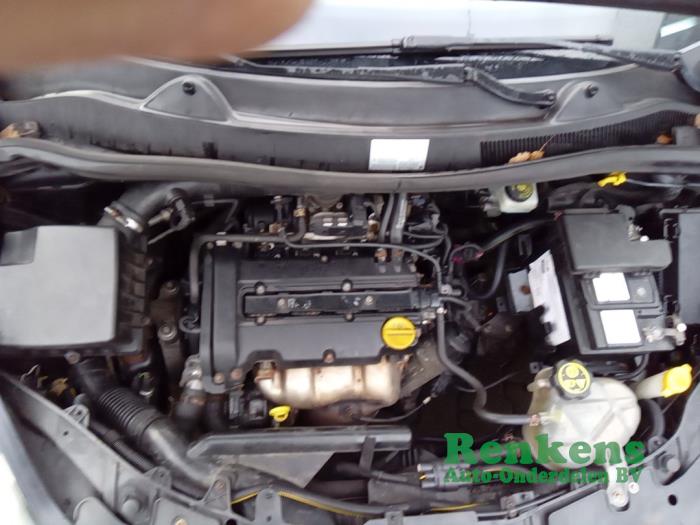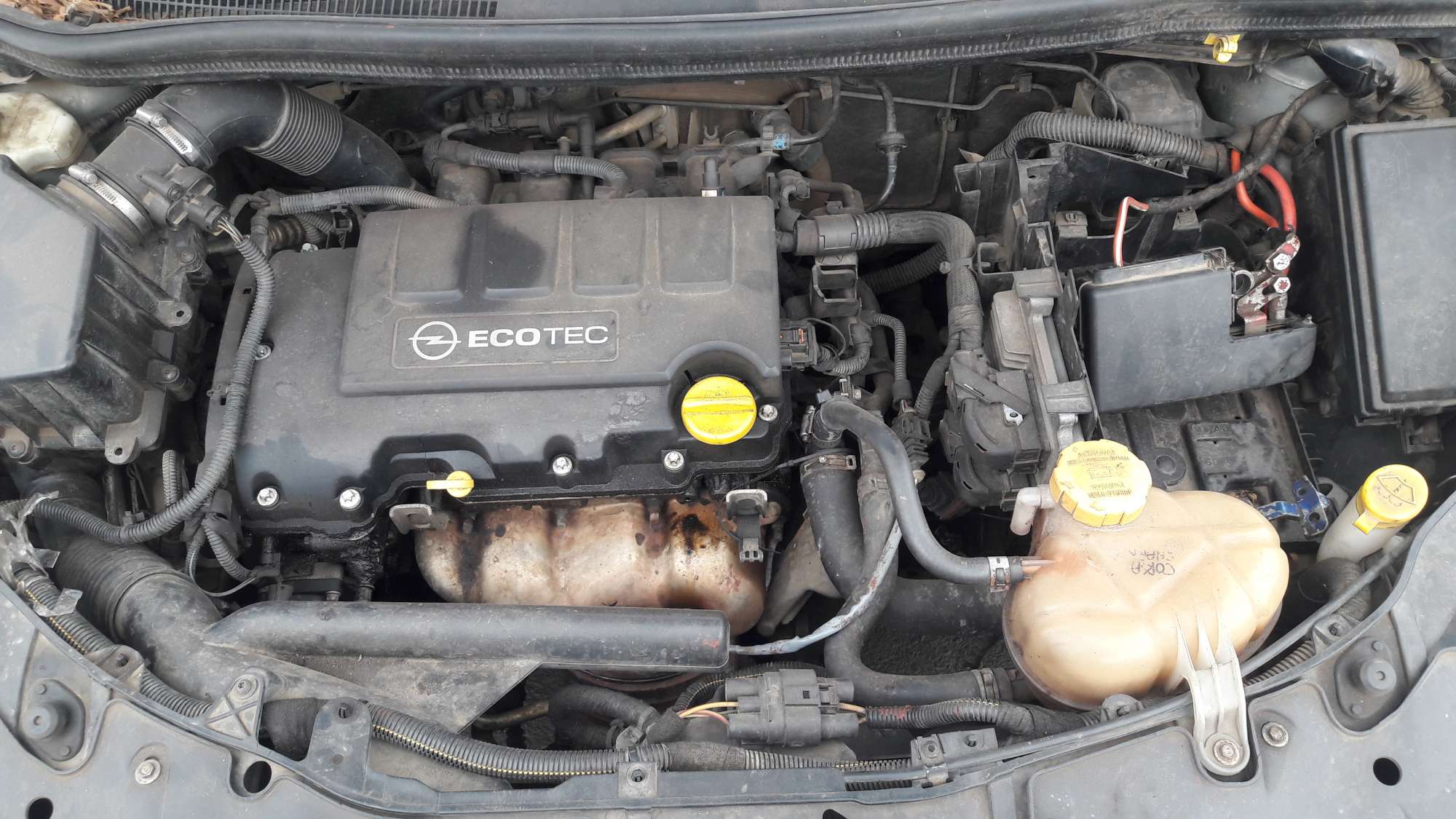Discover Competitive Opel Corsa 1.4 Engine Price Options at Car Parts Market
Discover Competitive Opel Corsa 1.4 Engine Price Options at Car Parts Market
Blog Article
Engine Acquiring Specialist Tips on Choosing the Right Engine for Your Specific Demands
Choosing the best engine for your particular needs involves a complex interplay of factors that go beyond plain horse power numbers. By delving right into the details of power versus effectiveness, evaluating gas rankings, and budgeting for long-term prices, one can genuinely enhance their engine selection.
Power Vs. Efficiency: Discovering the Balance
When choosing an engine, it is critical to strike a balance between power and performance to satisfy your specific needs efficiently. Power refers to the engine's capability to create energy for propulsion, determining variables like acceleration, towing ability, and total performance - Opel Corsa 1.4 Engine Price. On the various other hand, efficiency connects to just how well the engine utilizes gas to generate power, impacting variables such as gas economic climate and environmental friendliness
Attaining the appropriate equilibrium in between power and efficiency is important due to the fact that an engine that is also powerful might take in extreme gas, resulting in higher operating expense and unneeded pressure on the environment. On the other hand, an engine that focuses on efficiency over power may cause slow-moving performance, particularly popular scenarios like towing heavy lots or driving uphill.
To make an informed decision, think about elements such as your typical driving conditions, the desired use the lorry, and your personal choices. By evaluating your needs and concerns, you can choose an engine that strikes the best equilibrium between power and effectiveness, making sure optimal efficiency while reducing ecological effect and operating costs.
Understanding Engine Size and Type
To additionally fine-tune the choice process of an engine that strikes the ideal balance in between power and effectiveness, it is vital to delve right into the ins and outs of understanding engine dimension and kind. Engine size refers to the complete volume of air and gas that can be pushed through the engine cyndrical tubes.
In addition, engine type plays an essential duty in establishing the performance features of an engine. Typical engine types consist of inline engines, V engines, and rotating engines, each with its special advantages and disadvantages. The engine type influences elements such as the engine's dimension, weight distribution, and power distribution. Understanding the interaction between engine dimension and kind is important in picking an engine that lines up with your details needs and top priorities, whether it be power, efficiency, or an equilibrium of both.

Consider Your Car's Needs
Considering your automobile's requirements is a basic action in the engine selection procedure to ensure optimum performance and capability. It is necessary to evaluate variables such as the intended use the car, its weight, lugging capability, and gas effectiveness demands. As an example, if you are seeking an engine for a heavy-duty vehicle that will be utilized for towing, you will certainly need an effective engine with high torque capacities. On the other hand, if you are picking an engine for a compact automobile largely used for city travelling, gas efficiency may be a much more critical element to think about.
In addition, the surface on which the lorry will primarily operate ought to influence your engine option. If you regularly drive in sloping or hilly locations, a durable engine with excellent climbing up power will certainly be needed. Conversely, look at here for flat terrains, a more fuel-efficient engine may suffice. By aligning the engine specifications with your vehicle's requirements, you can guarantee that your vehicle runs successfully and fulfills your efficiency expectations.
Reviewing Fuel Efficiency Rankings
Examining fuel performance scores is a vital aspect of picking the view it ideal engine for your car, ensuring price savings and ecological sustainability. Fuel efficiency scores, generally measured in miles per gallon (MPG) for gas engines or kilowatt-hours per 100 miles (kWh/100 miles) for electric engines, show exactly how much an automobile can travel on a certain amount of gas or electrical power. Greater MPG or reduced kWh/100 miles values symbolize more reliable engines, translating to minimized fuel expenses and reduced carbon emissions.
When reviewing fuel performance ratings, consider your driving routines and needs. A very fuel-efficient engine can result in significant cost savings over time if you commute long ranges daily. In addition, compare different engine alternatives within the same car course to recognize the most economical option. Variables such as engine size, weight, aerodynamics, and hybrid or electrical capacities can all affect fuel efficiency.
Budgeting for Long-Term Costs
Tactically planning for lasting costs is necessary when choosing an engine, guaranteeing financial sustainability over the lorry's life expectancy. While the initial acquisition cost of an engine is a significant variable, it is vital to consider the lasting expenses associated with upkeep, repairs, and gas usage.
Moreover, looking into the availability and price of replacement components for the selected engine is essential in budget plan preparation. Engines with easily offered and budget friendly parts can substantially impact long-lasting upkeep expenses. In addition, considering the engine's toughness and expected life expectancy can aid avoid unforeseen substitute costs in the future. By very carefully budgeting for these long-term costs and factoring them right into the decision-making procedure, individuals can choose an engine that not just fulfills their immediate requirements yet also remains economical throughout its life-span.
Verdict
Finally, selecting the right engine for visit site your particular needs needs stabilizing power and efficiency, understanding engine size and kind, considering your vehicle's requirements, evaluating gas performance rankings, and budgeting for lasting prices. By meticulously taking into consideration these variables, you can make certain that you pick an engine that fulfills your requirements and supplies ideal performance for your vehicle.
To additionally improve the option process of an engine that strikes the optimal equilibrium between power and efficiency, it is essential to dive into the intricacies of comprehending engine size and kind. Engine size refers to the total quantity of air and fuel that can be pressed with the engine cylinders. Typical engine types consist of inline engines, V engines, and rotary engines, each with its one-of-a-kind benefits and drawbacks. Recognizing the interplay in between engine size and type is vital in choosing an engine that aligns with your details requirements and top priorities, whether it be power, effectiveness, or an equilibrium of both.

Report this page